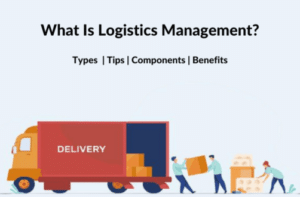
Unlocking Growth Potential: The Power of Logistics in Business Expansion
In today’s fast-paced and competitive world, logistics in business expansion has become a key factor in driving growth and success. Logistics refers to the strategic management of procurement, transportation, warehousing, and distribution, ensuring the smooth movement of goods and services from producers to consumers.
This article explores the power of logistics and how businesses can use logistics management to unlock new growth opportunities and improve efficiency.
1. Efficient Supply Chain Management
At the heart of logistics lies efficient supply chain management. When businesses coordinate procurement, production, and distribution effectively, they reduce costs, shorten lead times, and improve overall performance.
A well-structured logistics strategy allows companies to respond quickly to changing market conditions, maintain balanced inventory levels, and prevent operational bottlenecks.
By optimizing supply chain logistics, organizations increase productivity and profitability — creating a solid foundation for long-term business growth.
2. Expanding Market Reach
One of the most powerful benefits of logistics management is the ability to expand into new markets.
With strong transportation and distribution networks, companies can reach customers across different regions and countries. Partnering with trusted logistics services providers gives businesses access to established global routes, reliable shipping systems, and local expertise.
In this way, logistics in business expansion becomes the bridge between companies and new customer bases, supporting growth and boosting revenue.
3. Enhancing Customer Satisfaction
Customer satisfaction is the cornerstone of successful business expansion — and logistics plays a vital role in achieving it.
By improving logistics operations, companies can ensure:
Timely delivery of products
Accurate order fulfillment
Real-time order tracking
Hassle-free returns and exchanges
When customers receive fast, reliable service, their trust in the brand grows. This not only drives repeat purchases but also promotes positive word-of-mouth, helping attract new customers and strengthen market presence.
4. Optimizing Inventory Management
Strong logistics management helps businesses maintain the right balance between supply and demand. Through real-time data tracking and analytics, companies can monitor inventory levels, understand buying trends, and make smarter decisions.
Advanced logistics practices such as just-in-time inventory and cross-docking reduce excess stock and warehousing costs.
Efficient inventory logistics frees up working capital, allowing businesses to invest in innovation, marketing, and other growth-driven activities.
5. Flexibility and Scalability
As businesses grow, they need systems that can adapt quickly — and logistics provides that flexibility.
A well-planned logistics strategy supports scalability, helping companies expand operations without compromising efficiency. Whether it’s managing seasonal demand, entering new markets, or handling unexpected challenges, logistics in business expansion ensures smooth transitions and sustained performance.
By leveraging modern technology and logistics infrastructure, companies remain agile, competitive, and ready for future opportunities.
Conclusion
The power of logistics in driving business growth cannot be overstated. From improving supply chain management to enhancing customer satisfaction, logistics provides the structure and efficiency that modern businesses need to expand successfully.
Companies that invest in strong logistics solutions can reduce costs, streamline operations, and reach new markets faster — achieving sustainable, long-term growth.
In an increasingly globalized and competitive world, logistics in business expansion is not just an operational function — it’s a strategic advantage that determines how far and fast a business can grow.


